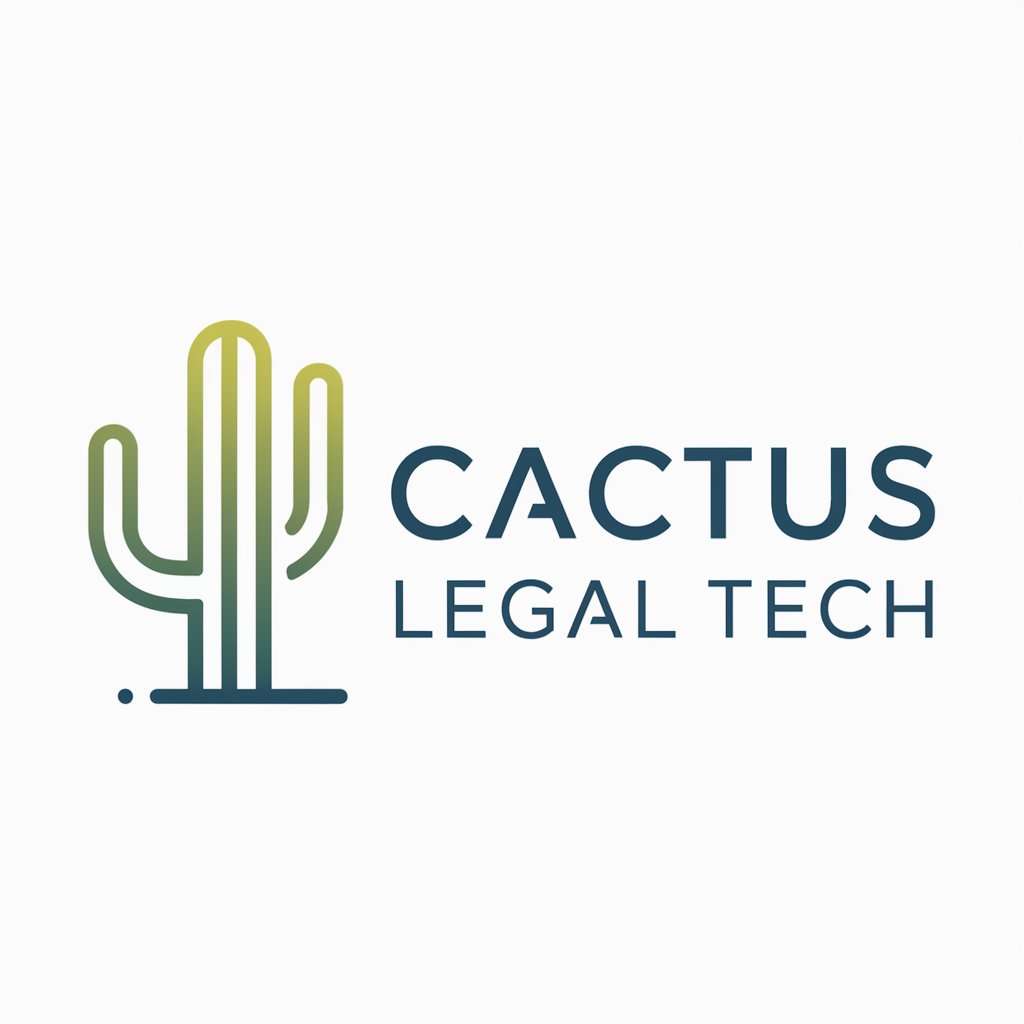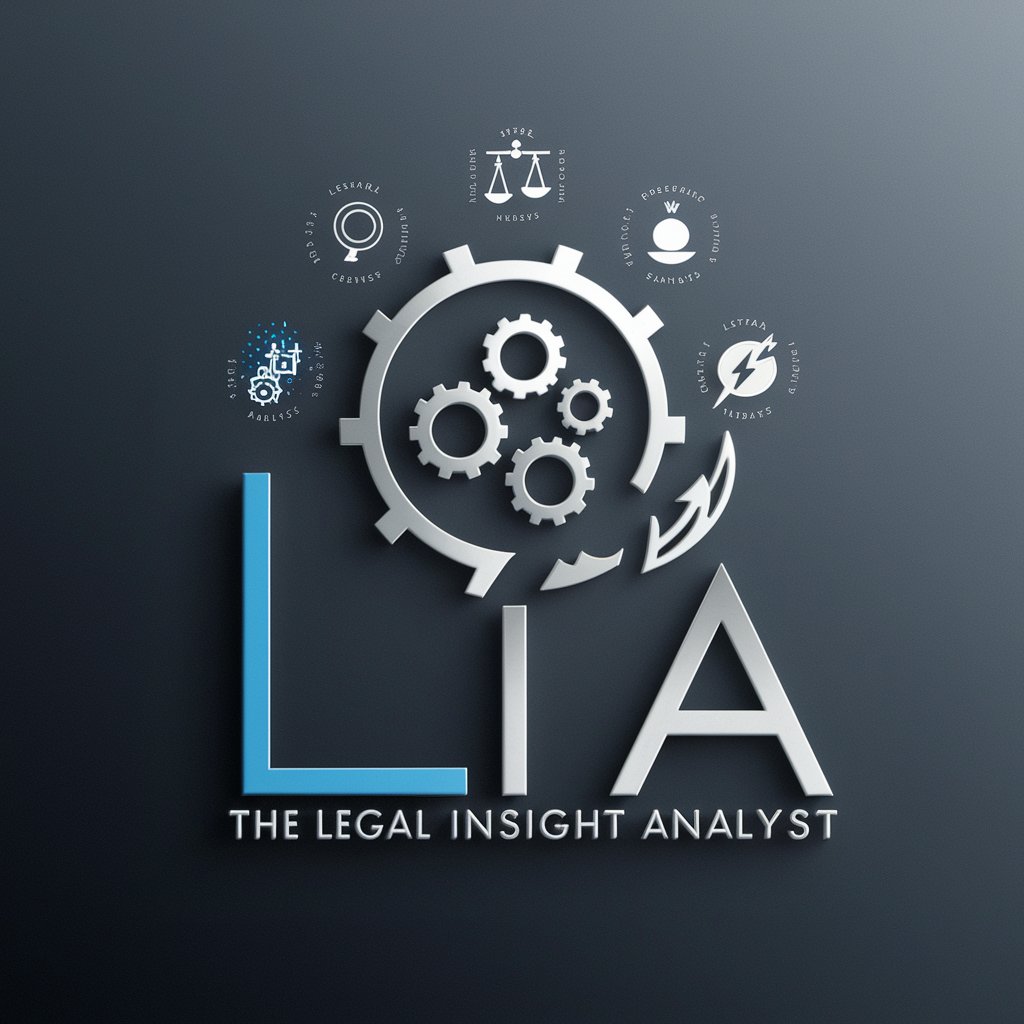7 GPTs for Legal Automation Powered by AI for Free of 2026
AI GPTs for Legal Automation are advanced tools powered by Generative Pre-trained Transformers designed to streamline and enhance legal processes through automation. These AI models are specifically tailored to handle a wide range of legal tasks, including document review, contract analysis, legal research, and even drafting legal documents. By leveraging the capabilities of GPTs, these tools offer precise, efficient, and cost-effective solutions that are revolutionizing the way legal professionals work, making complex legal tasks more manageable and accessible.
Top 7 GPTs for Legal Automation are: Advogado Especialista em Direito Civil,Smart contract Wizard,Cactus Legal Tech,Legal Insight Analyst "LIA",就業規則作成アシスタント,Parking Fine Extractor,Contract Terminator
Advogado Especialista em Direito Civil
Automating Your Legal Drafting with AI

Smart contract Wizard
AI-Powered Smart Contract Development

Cactus Legal Tech
Automate Legal Tasks with AI

Legal Insight Analyst "LIA"
Empowering Legal Minds with AI Insight

就業規則作成アシスタント
Automate your employment rules creation with AI

Parking Fine Extractor
Automate Parking Fine Processing with AI

Contract Terminator
AI-powered Contract Termination Expert

Distinctive Attributes and Capabilities
AI GPTs for Legal Automation are distinguished by their adaptability, precision, and the ability to perform both simple and complex legal functions. Key features include advanced natural language processing for understanding and generating legal text, the capability to learn from legal databases for accurate analysis and prediction, and customizable interfaces that cater to specific legal tasks. These tools also support integration with legal databases and systems, offering real-time updates and insights that are crucial for legal decision-making.
Who Benefits from Legal Automation GPTs?
The primary beneficiaries of AI GPTs for Legal Automation include legal professionals, law firms, corporate legal departments, and legal academics. These tools are also invaluable for novices or those without coding skills, providing easy-to-use interfaces and guided processes. For developers and IT professionals in the legal field, these GPTs offer extensive customization options and programmability, enabling the creation of tailored solutions for specific legal operations.
Try Our other AI GPTs tools for Free
UI Visualization
Discover the transformative power of AI GPTs for UI Visualization, bridging the gap between conceptual ideas and visual designs with intuitive, AI-driven tools.
Symbolic Tool
Discover how AI GPTs for Symbolic Tool revolutionize handling symbolic data with advanced AI capabilities, tailored for a broad audience and diverse applications.
Mind Exploration
Explore the depths of the human mind with AI GPTs for Mind Exploration. These powerful tools offer innovative solutions for understanding cognition, behavior, and mental health through advanced AI technology.
RPG Adventure
Discover AI GPTs for RPG Adventure: the ultimate tools for creating immersive, dynamic role-playing game experiences. Perfect for developers and enthusiasts alike.
Feline Exploration
Explore the cutting-edge AI GPT tools for Feline Exploration. Tailored for cat lovers, professionals, and researchers, these tools offer insightful data analysis, breed identification, and interactive advice for all things feline.
Peak Management
Discover how AI GPTs enhance Peak Management through predictive analytics, automation, and integration, optimizing resource allocation during high-demand periods.
Further Perspectives on Customized Legal Solutions
AI GPTs for Legal Automation not only simplify complex legal tasks but also offer innovative approaches to legal analysis and decision-making. With user-friendly interfaces and the potential for integration into existing legal frameworks, these tools are setting new standards for efficiency and effectiveness in the legal field, opening up possibilities for more informed and agile legal practices.
Frequently Asked Questions
What are AI GPTs for Legal Automation?
AI GPTs for Legal Automation are specialized AI tools designed to automate and enhance various legal tasks using Generative Pre-trained Transformers technology.
How do AI GPTs improve legal processes?
They streamline legal workflows by automating document analysis, contract review, legal research, and document drafting, significantly reducing time and effort.
Can non-technical users operate these AI tools?
Yes, these tools are designed with user-friendly interfaces that allow non-technical users to perform complex legal tasks with ease.
Are AI GPTs customizable for specific legal needs?
Absolutely, they offer extensive customization options for developers, allowing for tailored solutions to meet specific legal requirements.
How do these AI tools integrate with existing legal systems?
AI GPTs for Legal Automation can be integrated with existing legal databases and systems, providing seamless access to up-to-date legal information and analytics.
What makes AI GPTs different from traditional legal software?
Unlike traditional legal software, AI GPTs leverage advanced AI and machine learning to provide dynamic, adaptable, and intelligent solutions that improve over time.
Can AI GPTs handle sensitive legal information securely?
Yes, these tools are designed with advanced security measures to ensure that all legal information is processed and stored securely.
What future developments are expected in AI GPTs for Legal Automation?
Future developments include enhanced natural language understanding, deeper integration with legal databases, and more sophisticated predictive analytics for legal outcomes.